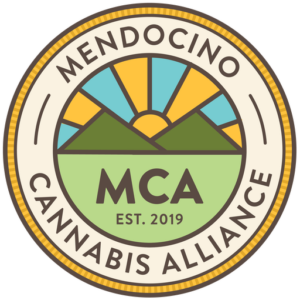
September 19, 2020
Mendocino County Board of Supervisors
501 Low Gap Road
Ukiah, CA 95482
Re: Agenda Item 6B) Discussion and Possible Action Including Direction to Staff on Cannabis Cultivation Permitting Priorities Including, but Not Limited to: County Counsel Analysis of State CEQA request, Digital Portal, Cost Recovery for Work Outside of Application Scope, Interagency Biologist Agreement, Publication of Cannabis Cultivation Guide, Plan for Staffing Increase or Consultant Request for Proposal (RFP), Equity Grant Program Update, Notices to Correct Applications, Request Provisional License Extension from California Department of Food and Agriculture, and Schedule Special Board of Supervisors Meeting for Cannabis Cultivation Phase 3 Zoning Table and Permitting Model (Sponsor: Cannabis Ad Hoc Committee (Supervisors Haschak and Williams)
Honorable Supervisors,
We would like to thank you all for your continued efforts to resolve the existential issues facing our county’s licensed cannabis farmers. We are especially grateful to the Cannabis Ad Hoc Committee members for their relentless exploration of the issues and for the comprehensive set of recommended actions being presented today. MCA is strongly aligned with this approach. We respectfully encourage all Supervisors to vote in favor of all recommended actions and to consider refining them as per our comments and questions outlined here in our memo.
First, before we address each specific recommended action, it is important to highlight that many of the issues we face, which these proposed recommended actions seek to address, all stem from one fundamental problem:
Cannabis cultivation is an agricultural land use and it should be regulated as such.
Mendocino County is a community rooted in cannabis agriculture that co-exists alongside our vineyards, orchards and farms. With our increasingly localized food system, generations of herbal medicine makers, and culture of innovative land steward entrepreneurs, we are poised to demonstrate to the world that our region’s cannabis crops yield unique products of place, rooted in our land and the culture of our farming community. Until our cultivators are recognized and treated as the farmers that they truly are, our whole County will continue to suffer under an oppressive regulatory system that considers cannabis to be a manufactured product, rather than an agricultural crop. It is this fundamental mischaracterization of cannabis cultivation land use that in turn causes most of the problems we have been wrestling with as a County since our permitting program launched in 2017.
We strongly encourage the Board of Supervisors to take up this cause and lead the charge with other rural legacy producing regions and advocate for changes to state law that would accurately redefine cannabis as an agricultural crop.
- Appendix G:
- We support this exploration into whether the Appendix G as currently required by the State is a lawful burden to place on the
- We request that the 30-day deadline for county counsel to report back to the Board of Supervisors be a hard deadline and the absolute maximum time allowed. Any extension of this timeline will continue to exacerbate the problem we face.
- Any exploration of this issue must include an analysis of the logistical, financial and regulatory IMPACT on the current applicants and permit holders given the commitment the County has already made to get them over the finish line and given the years of taxes the County has collected and hopes to collect from regulated cultivators into the
- Digital Portal:
- We support the development of a digital portal for submission of documents and application status
- We strongly recommend that explicit direction be given to decouple the digitizing of existing files from the development of a portal for document submission. It is urgent that documents be digitized so that assessment of completeness and notice of corrections can be issued as soon as possible. This should not be delayed by the time needed to identify and implement portal
- We request that MCA be consulted as part of this process. Our leadership has extensive experience with the County’s ordinance requirements, file management process, and CDFA’s digital application portal. The County has had numerous attempts at “cleaning-up” the application system. It continues to fall short of efficient processes because new ideas are not vetted with industry
- Applicants should be encouraged to re-submit their files and supporting documentation (in a digitized form or on a thumb drive) AFTER a complete and list of essential forms and documents for the entire process, accurately matched to the ordinance, SSHR and potential Appendix G requirements is compiled and disseminated.
- Cost Recovery:
- An accurate evaluation of whether costs are duplicative or specifically tied to actual requirements of the ordinance, SSHR, or Appendix G process is
- Interagency Biologist:
- We support the securing of an onsite biologist through CDFW in order to expedite Sensitive Species and Habitat Reviews. However, we believe this should be a temporary stopgap measure while the County continues to explore whether or not it is possible to remove reference to CDFW from the ordinance section regarding the SSHR, and to conduct the SSHR by using any qualified biologist. (See MCA Memo from 6/9/2020 on Agenda Items 6A/6B.)
- Cannabis Cultivation Guide:
- We generally support the creation of appropriate guides which provide consistent explanations and reference materials to help applicants and permittees through various stages of the
- We request that time and resources be focused on producing reference guides for SSHR, Appendix G (if applicable), implications of site development or other processes that have a direct impact on CEQA compliance and, ultimately, CDFA annual license eligibility. A flow chart explaining what applicants should or should not do to make it through that process would be extremely helpful. It is imperative that the information and guidance provided be accurate and not based on expanded
- This guide should be focused on the permitting process and not on cultivation practices.
- Staffing:
- We support the concept of a 6-month application processing timeline and the outsourcing of this effort to a third party if the County canno
- However, we request that the Scope of Work be defined after we have fully evaluated the need for Appendix G. If the scope is to include the SSHRs, Appendix G, and the processing of cultivation applications, we have concerns that it will be difficult to find a single consultant that is reasonably priced and has the correct expertise to navigate these components in a timely manner.
- Equity Grant Program:
- We support the recommended direction to Staff to provide a presentation as soon as possible. Given that the Requests for Proposal were posted on August 25th, 2020 and due on September 24th, 2020 and the Equity Program is set to launch on November 1st, 2020 it is important that not only the Board of Supervisors, but potential applicants also be informed of the program’s development
- We request that a specific date for the presentation be determined as part of the recommended
- Notice to Correct:
- We support the concept of providing Notices to Correct to permittees/applicants provided they are given sufficient time to respond and County Staff has sufficient resources to receive and keep track of documents and information
- We request that a minimum of 30 days be given to respond to any Notice to Correct, with extensions of time due to outside agency processes, Covid or Fire delays, or lack of available professional assistance..
- We also request that Notice to Correct be processed/sent in batches to keep the workload manageable for both County Staff and various consultants and professionals.
- Permittees should be prioritized first, in order of application, followed by pending applicants in order of
- Provisional Extensions:
- We support pursuing all possible avenues to achieve a State extension of the Provisional to Annual license window beyond 12/31/21.
- Phase 3 Zoning:
- We support the proposed direction to schedule a special meeting to discuss Phase 3 Zoning and appreciate the attention that this would give to such a complex and consequential
Thank you for your thoughtful consideration of our requests and recommendations.
Respectfully,
Mendocino Cannabis Alliance

